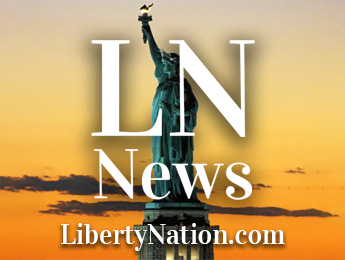Editor’s note: This is the first of a two-part series on the political and humanitarian crisis of epic proportions in Venezuela, featuring an interview aired on Liberty Nation Radio with Juan Carlos Hidalgo, Latin American policy analyst at Cato Institute.
![]() What has happened to Venezuela in recent days — or really weeks, months, and years — is almost beyond comprehension. One of the world’s most oil-rich nations, under the iron-fisted Marxist leadership of first Hugo Chavez and now Nicolas Maduro, has descended to a point where masses of people are starving, violence is rampant, inflation has skyrocketed, the most basic supplies and medicine are unavailable, and Venezuelans are fleeing the country in droves – three million is the latest estimate.
What has happened to Venezuela in recent days — or really weeks, months, and years — is almost beyond comprehension. One of the world’s most oil-rich nations, under the iron-fisted Marxist leadership of first Hugo Chavez and now Nicolas Maduro, has descended to a point where masses of people are starving, violence is rampant, inflation has skyrocketed, the most basic supplies and medicine are unavailable, and Venezuelans are fleeing the country in droves – three million is the latest estimate.
And now, 35-year-old Venezuelan opposition leader Juan Guaido has declared himself interim head of state with the support of the Venezuelan legislature, the National Assembly, though not the military, which remains loyal, at least publicly, to dictator Maduro.
In what could well be the turning point in this ongoing political and humanitarian crisis, President Trump joined most Western nations in recognizing Guaido as the legitimate Venezuelan head of state. Only the countries that have heavily invested in the Maduro regime — Russia, China, Syria, Iran, Turkey, and a few smaller nations – continue to recognize the beleaguered dictator.
On Liberty Nation Radio, Juan Carlos Hidalgo, Latin American policy analyst at Cato Institute, provided expert analysis on the death spiral of Marxist Venezuela.
Tim Donner: What would you say the chances are that Maduro is able to hold on to his power, versus the chances that Guaido can successfully consolidate his newfound power?
Juan Hidalgo: Well, in the last six years, nobody has won a bet predicting the downfall of Nicolas Maduro. He has outlived many predictions, previous predictions, where people say that this time, it was it. However, we see a confluence of factors right now that make this week’s events different from previous ones. We see a united front from the opposition, and the opposition in Venezuela is not a monolithic group. We have different leaderships that fight among themselves with different agendas. Some of them have been more blunt in their resistance to Maduro. Others were more willing to compromise and negotiate with the regime. [perfectpullquote align=”left” bordertop=”false” cite=”” link=”” color=”” class=”” size=”24″]…now, a relationship between the people and the opposition is back on track.[/perfectpullquote]
Right now, under the leadership of Juan Guaido, we see that the opposition, which was hopeless up until a month ago, is back in the ring, is unified. He rekindled it. It’s in league with the population. The population had stopped believing in the opposition, also, recently. And now, a relationship between the people and the opposition is back on track. So I think that that’s one of the factors that gives us hope that Venezuela might change in the near future.
The other one is the international community. We see a strong backing, not only from the United States. Of course, the United States is the big player in the ring, but we also see most Latin American countries, including Venezuela’s neighbors, Brazil and Colombia. We see the European Union, we see Japan, all of them recognizing the National Assembly of Venezuela, which is controlled by the opposition, as the legitimate body, not recognizing Maduro as legitimate, and most of these countries are recognizing Juan Guaido as the interim president of Venezuela.

Juan Carlos Hidalgo
I think that this combination of factors — international pressure, targeted sanctions, and the rekindled opposition with support of the population, 80 percent of whom want Maduro gone — might break the impasse that we have witnessed in recent years. Of course, the ultimate arbiters in this situation are the army. The armed forces are so far behind Nicolas Maduro. The question is whether they’re going to crack.
Tim Donner: Now, Maduro claims that he was legitimately elected, but many countries, including the U.S., refused to recognize Maduro’s election in May of last year as legitimate. Just how corrupt was that election?
Juan Hidalgo: Well, elections in Venezuela had been deeply flawed, since Maduro was … since Chavez was in power. The electoral roll, it has many problems. I mean, Venezuela, according to the official electoral roll, is a country that has more people over 100 years old, for example, than anywhere in the world. Many people who have died are still voting in Venezuela. Elections have been deeply flawed. However, the election last year was beyond the pale. Many opposition parties were prevented from contesting the election, and some opposition boycotted the election. So the international community didn’t recognize that election as valid.
And a few days ago, the United States, Canada, most of the Western countries said that they wouldn’t recognize Maduro as the legitimate president because of that sham election, and that the opposition-controlled National Assembly was going to be the only legitimate political body of the Venezuelan government.
–
In part two of this series, Mr. Hidalgo discusses whether the crisis in Venezuela threatens the flow of imported oil to the United States and whether the country is headed for an inevitable civil war.




